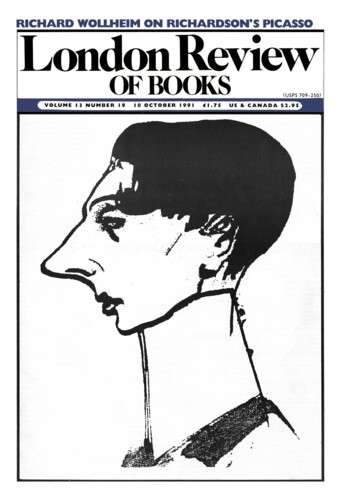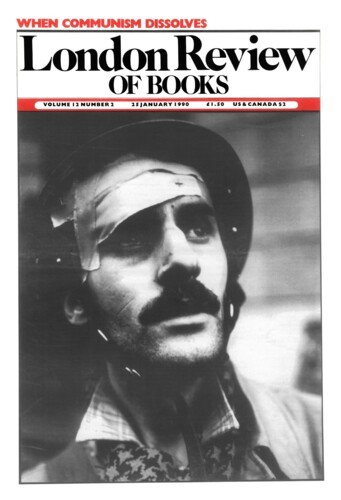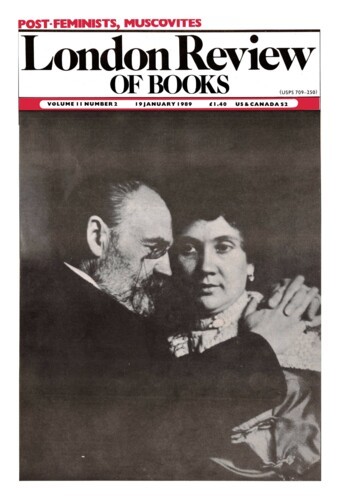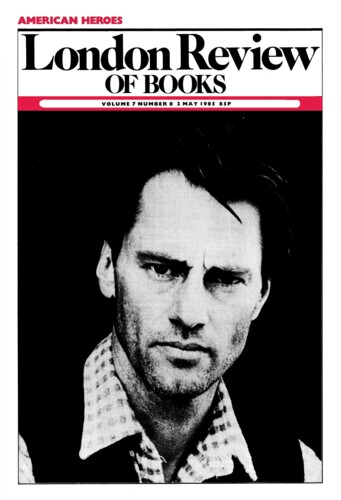Heavenly Cities
Daniel Aaron, 10 October 1991
For the last thirty years Richard Sennett – urban sociologist, historian, novelist – has been meditating on the culture and ecology of industrial cities: on how they evolved, on how their physical organisation and social structure related to the psychological and moral experiences of their inhabitants. More pointedly than his previous books, The Conscience of the Eye, he says, aims to show the interactions between the ‘architectural, urban planning, public sculpture, and the visual scenes of the city’ and its ‘cultural life’.’




